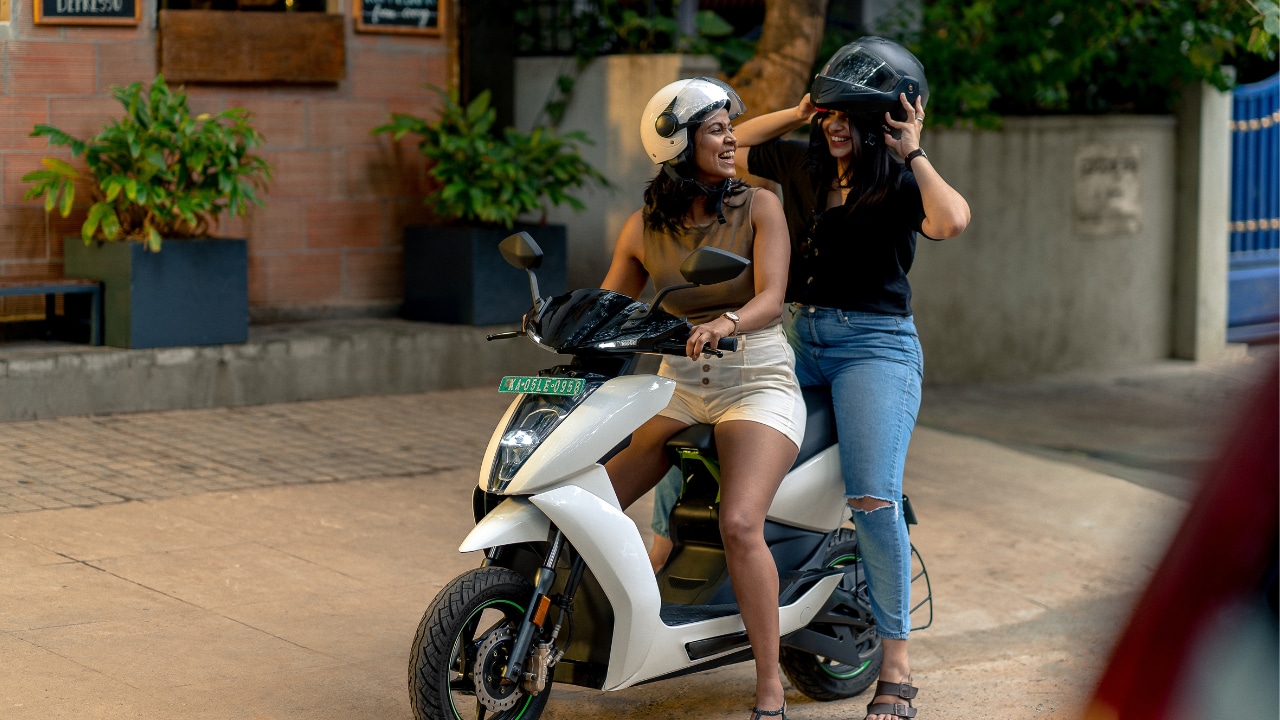Before Bengaluru-based Bounce Infinity hit the road, the two-wheeler electric scooter brand conducted a multi-state survey to understand what consumers really want. Amit Mehta, its director, head — growth and marketing, says the company found that potential consumers, especially women, feel that scooters in India are still masculine in nature because most brands in the space focus on ‘ultra-futuristic’ and ‘alien’-ish design elements. Keeping this insight in mind, the brand decided to have a strong chassis with subtle looks. The other feedback was that it should be comfortable to ride, and safe, adds Mehta.
Bounce Infinity started deliveries in April 2022. The company has so far registered 60,000 bookings. In the last 100-plus days, over 4,500 scooters have been delivered. Currently, 35% to 40% of the brand’s customers are women. Mehta credits the uptick in sales to the sturdiness of the scooter, which women riders are actively looking for.
Recently, Bounce Infinity became an official partner of Kemp Football Club (Kemp FC), a Karnataka State Football Association (KSFA) club and training academy based in Bangalore. From the marketing viewpoint, the brand is focusing on building awareness on adoption of EVs along with discussions around the discrimination faced by women on the football field. The company will give the best female player of the club a Bounce Infinity bike.
It’s not just the startup auto brands that are speaking to their women customers. After the positive success of its Nexon EV, Tata Motors recently conducted a survey to understand its consumers. The results of the survey highlighted that over 14% of Nexon EV owners are women, and indicated that there is a rise in enquiries by women buyers for the model. In Q1 FY23, the market share of the company among electric vehicles stood at 89%,
“The automobile industry has seen an immense increase in women buyers over the years,” says Vivek Srivatsa – head, marketing, sales, and service strategy, Tata Passenger Electric Mobility. “Driven by education, work, and changing lifestyles, women are becoming majorly involved in the car buying process and currently account for a good share of sales in the sector, which has led to an increased demand for personal mobility in the post-Covid era.”
What really are women buying?
Suman Mishra, chief executive officer, Mahindra Electric Mobility, goes on the ground to understand the sentiments of potential women buyers, mainly the ones who pick an e-Rickshaw or an e-Auto. Mahindra Electric Mobility holds more than 70% market share in the three-wheeler electric vehicle space. Mishra says women customers are a small but growing base, particularly in the electric segment.
During her conversations with women drivers, Mishra realised that most of them began driving a 3-wheeler electric vehicle after the loss of their household income. She further highlights that women, in the beginning, have apprehensions about driving an auto due to the perception that it is a man’s job. “The challenge lies in making them aware that driving an auto is gender-agnostic,” she adds.
However, after they start driving an auto, there is a sense of pride and ease that builds up. Also, from the maintenance point, the e-rickshaw and e-auto segments are not too complicated. Women customers are getting educated on the benefits of driving electric vehicles and spreading the word to their inner personal networks.
YSR Rajeev Kumar, chief mentor of EV Masterclass, a programme that helps governments, EV companies, students, etc solve problems for the industry, says women who are blue-collar employees focus on buying 2-wheeler and 3-wheeler electric vehicles. Women, who are white-collar employees, would mostly prefer 2-wheeler electric vehicles. Four-wheeler electric vehicles mainly attract women who have higher purchasing power.
According to media reports, in the first half of 2022, it was reported that around 1,814 4-wheeler electric vehicles were sold. The upfront cost of a 4-wheeler electric vehicle is 30% to 40% higher than its counterpart, internal combustion engine vehicles (ICE). This pricing will continue for the next 2-3 years. In the case of 2-wheeler EVs, Kumar explains that adoption will be immediate among women due to the cost factor. Today, in India, the average cost of an EV scooter is anywhere between Rs 1 lakh and 6 lakh.
Aiming to accelerate adoption
From a marketing point of view, brands must position electric vehicles as a mode of convenience that has lower running costs, especially for women, suggests EV Masterclass’ Kumar. Earlier this year, there were several incidents of EV 2-wheelers blowing up or catching fire. Kumar thinks EV brands — both startups as well as established players — should design special campaigns around safety and awareness. Tailor-made campaigns for women will also add new flavour to the category, he adds.
Some schemes have been introduced by the state governments of Delhi, Goa and Odisha targeted specifically at women buyers, increasing the affordability of 3- wheeler EVs.
Mahindra Electric Mobility’s Mishra says that the company works closely with dealer partners to increase visibility for its vehicles among women. “In some cases, our partners offer driving education to first-time women buyers, which enables them to make the purchase decision. We are also working on incorporating some ergonomic improvements in the vehicles that will make them more suitable for women drivers,” she adds.
